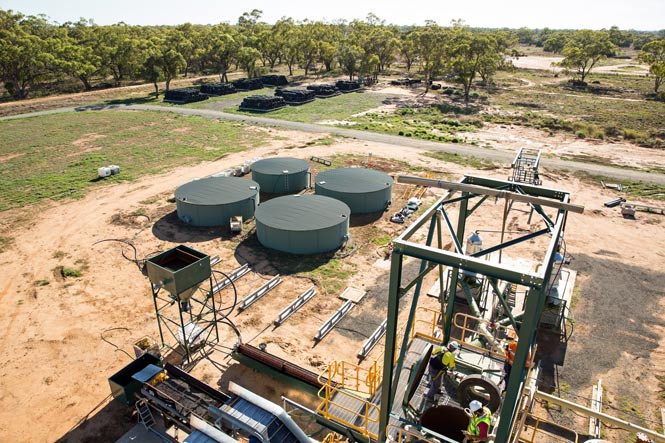Welcome to the December 2018 newsletter of Green Distillation Technologies. This edition provides updates for our Toowoomba, Warren and Perth recycling plant projects.
With more than one million old tyres in the Toowoomba area there will be plenty for the GDT plant
The projected estimate of more than one million old tyres in the Toowoomba area will provide plenty of raw material to sustain the proposed GDT recycling plant at full production, according to Trevor Bayley, the Chief Operating Officer of Green Distillation Technologies.
“In fact, we have been told that we are an essential piece of the jigsaw that will turn Toowoomba into the future transport hub for the entire region, which is one of the fastest growing in Australia.
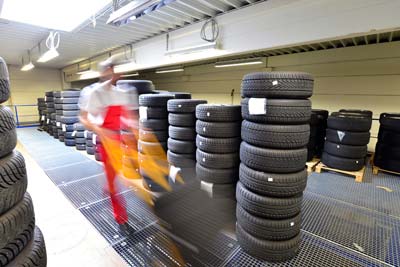
“End-of-life-tyres are one of those environmental problems that many seem to choose to ignore, but if you start to imagine what one million old tyres will look like you start to understand where we coming from.
“There is no market research that tells us exactly how many old tyres there are in the region but our estimates are based on the fact that there are more than four million vehicles registered in Southern and South Eastern Queensland and we know that on average a vehicle will require at least one new tyre each year,” Trevor said.
He said that currently old tyres from the Toowoomba area are sent to Brisbane for recycling which is mainly by cutting the tyres into pieces and sending them to landfill or grinding them into crumbs, but both methods don’t change the composition of the tyre and it will remain vulcanised rubber until eternity.
“In the case of crumbing, although some of the tyre crumbs are used for sporting fields and kiddies’ playgrounds, the reality is that a considerable amount is exported for use as tyre derived fuel in China, Vietnam and India which are countries with lower environmental standards.This practice would not be permitted in Australia or other western countries as it puts noxious greenhouse destroying gas emissions into the atmosphere.
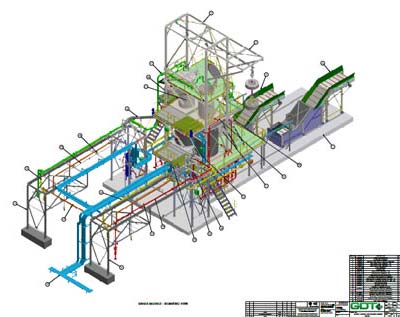
“Our proposed plant in Toowoomba is expected to cost $10 million to construct and when completed will process 19,300 tonnes, or a mix of about 700,000 car and truck tyres per year, to yield approximately 8 million litres of oil, 7,700 tonnes of carbon and 2,000 tonnes of steel. The oil will go to Gladstone for refining into fuel,” Trevor said.
“The GDT process is in line with today’s environmental expectations of a circular economy and the volume of valuable recyclable material produced is impressive with a typical 10 kg car tyre yielding 4 litres of oil, 4kg of carbon, 2kg of steel, a 70kg truck tyre will provide 27 litres of oil, 28 kg of carbon, 15 kg of steel and 4 tonne oversize mining dump truck tyre 1.6 tonnes of carbon, 0.8 tonne of steel and 1500 litres of oil.
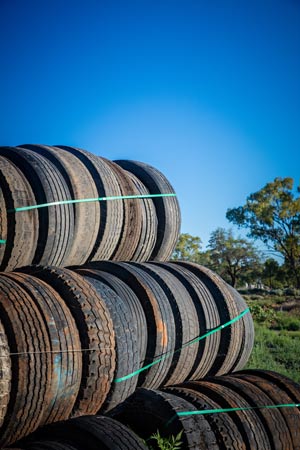
“We have set an old tyre collection area of a three-hour truck radius from Toowoomba, which will take us to the Gold Coast, the New South Wales border, west to Chinchilla and include southern Brisbane, Ipswich, Roma and Kingaroy.
“We have discussed setting up a tyre collection transport service with Ability Enterprises of Toowoomba, which is a not-for-profit social enterprise business established to give people a second chance through employment and they are excited at the prospect,” Trevor said.
Bruce Russell, General Manager of Ability Enterprises said that their role would create ten more permanent jobs which is in addition to the 15 to 18 permanent staff that will be required for the tyre processing facility to be built by GDT and also employ local contractors during the construction stage.
“Ability Enterprises was established in November 2012 to provide employment opportunities for people who face barriers to employment with particular emphasis on people with a lived experience of mental illness, physical disabilities, refugees and indigenous people. All our people are paid full award wages.
“Since our inception we have engaged with organisations and businesses including Toowoomba Regional Council, Roadtek, Department of Public Works, St Vincent’s Private Hospital and Nexus. The types of employment we have been able to offer to people with barriers to employment include gatehouse operations at waste management facilities,collection of soiled linen in a hospital, letterbox delivery, yardsman, administration, car washing and office maintenance/cleaning.
“So, you can see the opportunity to establish an old tyre collecting operation is one that we welcome with open arms,” Bruce said.
As well as the estimate of end-of-life-car tyres in the three-hour Toowoomba catchment area there is also the potential for significant numbers of old truck tyres, which of course when processed yield much greater amounts of oil, carbon and steel.
Already there are two very large livestock carriers that call nearby Warwick home, but provide a national service. The future plans for the inland rail and the creation of a $50 million transport hub are also beneficial to the tyre processing facility.
Lance MacManus of the Toowoomba and Surat Basin Enterprise, the industry group charged with bringing new investment to the region, said that Toowoomba was in a critical geographic position providing a logistical transport hub for all of Queensland and Northern New South Wales’
“The close proximity to the Inland Rail project, Wellcamp Airport and the Second Range Crossing are crucial parts of the transport and logistics infrastructure.“As the logistical hub grows around these major projects, the need for a modern end-of-life-tyre processing facility is an essential cog in the overall plan to create a modern transport hub with the necessary support services, and will be a great addition to our region,” Lance said.
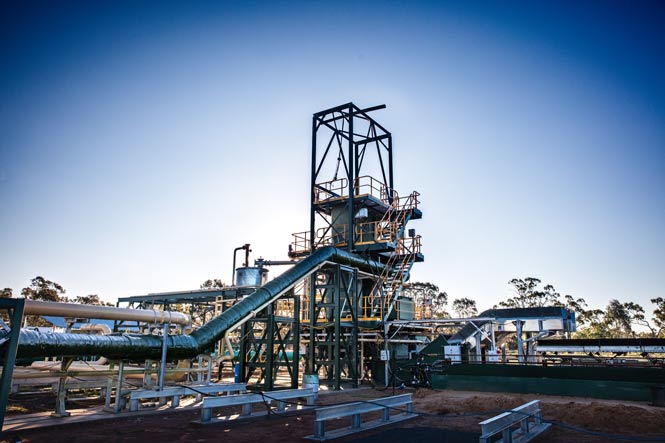
Completion of Warren plant and commissioning of Toowoomba are top GDT priorities
The completion of the Warren plant to bring it to full operating capacity and the commissioning of the Toowoomba facility was the major focus of Green Distillation Technologies during 2017, Managing Director Craig Dunn told the Annual General Meeting of the company, which was held in Toowoomba on 31 October.
The Toowoomba location followed the previous AGMs in Warren and Perth, where shareholders were also able to see the location of where the facilities will be constructed.
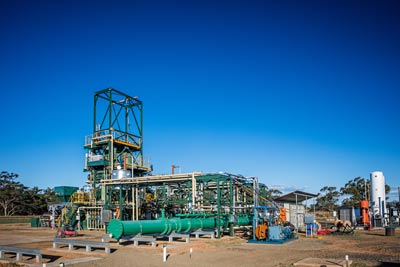
The Warren facility is designed to have six modules and the current plans envisage that this stage will be reached in 2019.
Craig also told the meeting that improvements to the process have been identified and will be incorporated in the second plant.
“Our business is in the evolving environmental resource recovery and renewable energy space and this fits in with the growing awareness around the world of the concept of cradle to grave products.
“In other words, you create the waste and you need to manage it and GDT is truly at the forefront of environmental thermo-metrics,” Craig said.
“As well as this aspect of our business, the prices for our products have been increasing with oil now 26 percent higher in price than our current conservative financial five-year modelling.
“Planning for the location of future sites in Australia is fluid with Stawell a possibility as GDT still own the site next to the old tyre dump and the USA is under consideration for a joint venture, an option has been negotiated for the rights to develop future plants in Kuwait,Oman, Qatar, Saudi Arabia, the UAR and Africa as well as an option for the UK and Ireland,” Craig said.
$6.5 million worth of equipment is sought to build the world’s first oversize tyre recycling plant
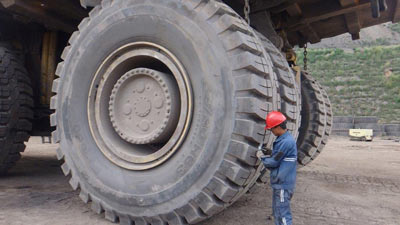
GDT and Tytec Recycling, the partners in the world’s-first technology that will recycle oversize old tyres into oil, carbon and steel, is seeking $6.5 million worth of equipment to build the world’s first processing plant to recycle extra-large “Off the Road” (OTR) tyres, such as those used on mining dump trucks, agricultural machinery and road building.
Construction of the plant, with a projected total cost of $10 million, is expected to commence in Q2 2019 in the Perth suburb of Welshpool with an estimated completion date of Q1 2020 .
The project, which was first announced in 2016 is a joint venture between GDT and Perth-based Tytec Logistics and since that time extensive logistical and engineering planning has been undertaken to learn how to handle the oversize tyres which are defined as those with rim sizes ranging from 25 to 63 inches and weighing up to four tonnes, with inches being the industry measurement standard rather than metric.
Tytec is a specialist in OTR tyres and their service includes logistics, storage, re-treading and repairs and has 70 percent of the Australian out of gauge mining tyre market and will be able to offer recycling as part of their package of services.
Trevor Bayley, the Chief Operating Officer of Green Distillation Technologies said that they have been in unknown territory as currently there are no means of recycling these very large tyres.
“The usual means of disposal is burial in a dump on the mine site, or in an EPA nominated dump and each instance the longitude and latitude of the dump is noted and together with the serial number of each tyre the information is provided to the EPA.
“The only other means of disposal has been by chopping or crumbing the tyres into small pieces, mainly for use as furnace fuel, or some is used on sporting fields and playgrounds, but this does not alter the vulcanised rubber which remains rubber forever.
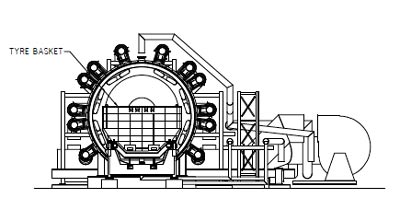
“GDT has been operating a test plant for processing OTR tyres and we have now completed this work and are ready to proceed with building the operational facility,” Mr Bayley said.
Zac Cox, Chemical Engineering Manager of GDT said that the largest component they are seeking is the reactor vessel. which has a 6-metre diameter and is 14 metres long, is made from stainless steel and thermally insulated to prevent heat loss.
“The large size, particularly the diameter of the vessel, as well as tight fabrication tolerances to ensure vessel integrity, pose a significant challenge for any manufacturer.
“Shipment of the vessel has proved to be challenging and we are assessing a variety of options such as on-site welding to build it as a single piece as transport of the vessel may contribute as much as 20% to the project cost.
“In addition to this large vessel, various other components will be sourced including piping, wiring as well as the various trades ranging from boiler makers, welders, plumbers and electricians,” he said.
Zac Cox said he had specification information available for suitable suppliers and contractors which can be obtained by calling him on 03 9826 2335, or by email to zac@gdt6.com
GDT sees Queensland Government Grant as vital for Toowoomba project

GDT has applied for a Queensland Government grant for 50 percent of the cost of constructing the Toowoomba tyre recycling plant and has been successful in being included in the second round of applications.
Chief Operating Officer Trevor Bayley said that there was a considerable attrition rate with eighty submissions surviving the original 150 applications, so although that does give some confidence, there is no guarantee that the funds will be granted.
“However, for us this is vital as we have applied for $5 million from the Queensland Government under their Resource Recovery Program and we will match these funds on a dollar for dollar basis to achieve the $10 million capital required to build the tyre recycling facility.
“Without this Government grant, the project will not go ahead.
“We are receiving enormous support from the Toowoomba community and the Local Government, Planners and business leaders have identified that a state-of-the-art tyre recycling operation is a vital cog in their plans to create a major regional transport hub,” Trevor said.
“As well as the obvious environmental benefits from a tyre recycling facility based on our world-first processing technology, the economic multiplier effect that we will bring is significant.
“We have approached Ability Enterprises of Toowoomba, which is a not-for-profit social enterprise business established to give people a second chance through employment, about setting up a tyre collection transport service and they believe that it will create ten more permanent jobs.
“This is in addition to the the 15 to 18 permanent staff that will be required for our tyre processing facility, as well as the local contractors that will be employed during the plant construction stage,” Trevor said.
